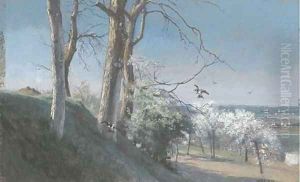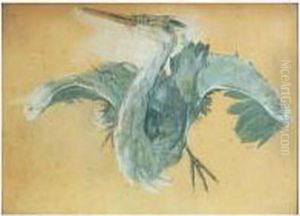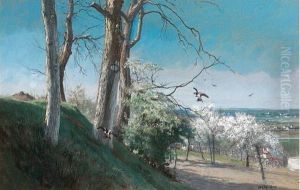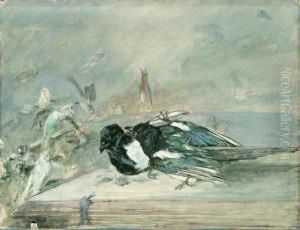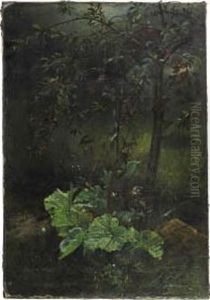Alfred-Emile Mery Paintings
Alfred-Emile Mery, a French artist whose life spanned from 1876 to 1953, was a distinguished figure in the early 20th-century European art scene. Born into a period of vibrant artistic innovation, Mery's work is often characterized by its engagement with the traditional subjects of portraiture and landscape, infused with the modernist impulses of his time. While not as widely recognized as some of his contemporaries, Mery contributed significantly to the artistic movements of his era, reflecting the shifting aesthetics and cultural attitudes of pre- and post-World War Europe.
Educated in the academies of Paris, Mery's artistic journey was marked by his exploration of both classical and emerging styles. He was deeply influenced by the Impressionists and Post-Impressionists, whose emphasis on light, color, and everyday subjects found echoes in his own work. However, Mery also maintained a certain adherence to the academic principles of composition and technique, balancing innovation with tradition. His paintings often depicted the French countryside and urban scenes, capturing the changing landscape of France during a time of industrialization and social upheaval.
Throughout his career, Mery exhibited his work in various salons and galleries, gaining recognition among art critics and collectors. His contributions to the art world were not limited to his own creations; he was also involved in the artistic community as a mentor and advocate for emerging artists. Mery's legacy, though perhaps overshadowed by the more famous names of his time, remains integral to the understanding of the transitional period in which he lived and worked. His death in 1953 marked the end of an era, but his artworks continue to be appreciated for their unique blend of traditional elegance and modern sensibility.
